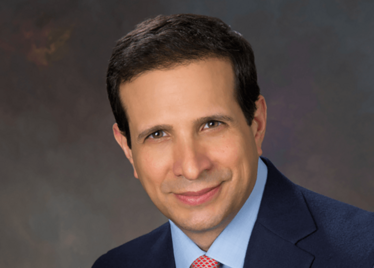Solutions in... Drug Development
Douglas J. Swirsky, CEO of Rexahn Pharmaceuticals, explains his company’s approach to developing more effective cancer treatments.

The problem
There are no drugs currently approved to treat metastatic triple negative breast cancer. And for the majority of cancers with treatments available, there remains a significant number of patients for whom the drugs do not work – and we have a limited understanding of why this is the case.
Background
Although many standard chemotherapy drugs have been on the market for a long time, they may only work in around 60 or 70 percent of patients. For certain kinds of cancer, such as bladder cancer or malignant melanoma, the available drugs only work 20 to 30 percent of the time, and in some cancers it’s as low as eight percent of patients. The reasons behind this are unclear, but it highlights why we need more personalized and precise treatments for patients. Immunotherapy drugs are one such approach, but when you take the breaks off the immune system, it can go into hyperdrive and begin killing healthy tissue in addition to cancer cells.
A solution
The founder of Rexahn was a cancer biologist, Chang H. Ahn, who saw the need to come up with drugs that exclusively killed off cancer cells. He started out by asking, are there any cancer-specific targets? Going back 10 years, in the early days of the company, work began by identifying specific drug targets. For example, UCK2, an enzyme overexpressed in tumor cells, and phosphorylated-p68, also selectively overexpressed in cancer cells. The latter modulates the activity of the β-catenin/Wnt pathway, which is involved in cancer cell growth and proliferation, oncogene expression and in the immune response to cancer.
Fast forward to today and we have two different drugs, RX-3117 and RX-5902, which are in midstage Phase II clinical trials, for different types of cancer. RX-3117, once activated by UCK2 and incorporated into the DNA or RNA of cancer cells, induces apoptotic cell death, and RX-5902, a small molecule inhibitor of phosphorylated-p68, decreases the proliferation or growth of cancer cells. We believe both drugs are cancer-cell specific and are well tolerated in patients – we are not seeing the kind of life-threatening toxicities that can come with other cancer drugs.
One of the collaborations we have is with a group at the University of Colorado. They showed that RX-5902 increases the number of T-cells entering the cancer cells and making the tumor more susceptible to being killed off by the patient’s own immune system or by an immuno-oncology compound, such as Keytruda. We’re actually collaborating with Merck (MSD) to see if this might work in practice.
Beyond the solution
Over the next few years, we hope to refine our understanding of the potential of our compounds as our clinical trials proceed. We recently announced that in our Phase IIa trial for metastatic pancreatic cancer with RX-3117 in combination with paclitaxel protein-bound particles for injectable suspension, one patient out of 24 had a complete response, eight had a partial response and 13 patients had stable disease, with an overall response rate of 38 percent. We are also looking forward to initiating our Phase II trial with the combination of RX-5902 and Merck’s Keytruda in metastatic triple negative breast cancer. The future looks exciting!

Over the course of my Biomedical Sciences degree it dawned on me that my goal of becoming a scientist didn’t quite mesh with my lack of affinity for lab work. Thinking on my decision to pursue biology rather than English at age 15 – despite an aptitude for the latter – I realized that science writing was a way to combine what I loved with what I was good at.
From there I set out to gather as much freelancing experience as I could, spending 2 years developing scientific content for International Innovation, before completing an MSc in Science Communication. After gaining invaluable experience in supporting the communications efforts of CERN and IN-PART, I joined Texere – where I am focused on producing consistently engaging, cutting-edge and innovative content for our specialist audiences around the world.



















